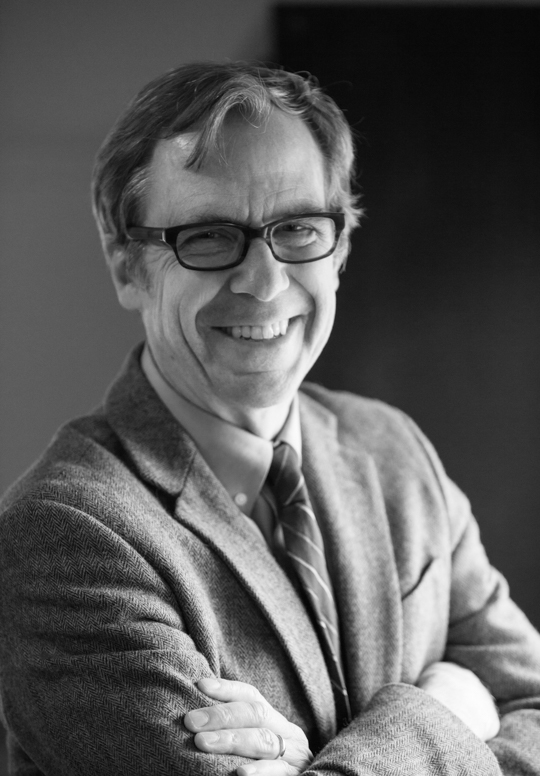Tim Tynan has been teaching history at The Academy since fall of 2000. He holds a Bachelor of Arts in History and English Literature from Loyola University of Chicago, as well as a Master of Arts in English Literature and an Illinois teaching certificate in Secondary Education from Northeastern Illinois University.
Mary Kettering joined the Humanities Department in 2018. She holds a degree in political science and history from the University of Montana, where she also earned her teaching certification. She earned her Masters of Philosophy in Women and Gender Studies from Trinity College in Dublin, Ireland.
Students at The Academy will take requisite courses such as World History and American History, and will have the opportunity to take additional courses within the department such as Modern American History, Honors World Religions, and AP Psychology.
The foundational philosophy of the Social Studies courses is that language, discussion, reflection, and imagination lead to the development of skills which help students understand and interpret the human experience. The curriculum requires that students develop a personal consciousness or an active sense of civic duty through the in-depth exploration of history, psychology, philosophy, and the likes; the ability to understand the human experience outside of one’s own individual social and cultural context allows students to develop a conscience more suited to the multicultural world in which they live.
Social Studies Courses
World History examines the origins, development, and legacies of civilizations that have shaped the world. Students begin by looking at the origins of humankind in Africa, then follow the development of people, places, and cultures in Mesopotamia, Egypt, India, China, Greece, and Rome. Over two semesters, students will explore key concepts such as culture, religion, science and technology, government and politics, economics and geography in order to fully understand the drama and meaning of the human experience. This course requires students to engage in historical thinking by evaluating evidence, raising questions, and marshaling evidence to support answers. Students will develop key skills such as chronological thinking, historical comprehension, analysis and interpretation, research, and decision making.
With as much chronology and detail as possible, this class on United States history looks at how the nation evolved from a European colony to a world power. There is no flinching in its presentation of events, from the uncomfortable truths that brought this evolution about. This survey of America’s past involves neither undue celebration nor condemnation, and it makes every effort to avoid elevating into myth or demonizing into infamy any of the principal figures who contributed to America’s current stature. All students are welcome to their individual ideologies and political convictions, but it is preferable that their thinking not be fixed upon them. The goal for this class is not to tell students what to think but to expose them to and perhaps even get them to relish the complexities of American history, so that each student leaves this course with enduring curiosities rather than comfortable certainties about the past.
AP European History covers the run of European history from the fall of the Roman Empire to the fall of the Soviet Union in 1991. It is divided into four quarters, each quarter consisting of at least four thematic units. Each unit is followed by an exam involving ten or more short answer responses and one essay. In each quarter students write one paper on any of the units covered in class. As a way of grounding their research, students form a thesis about a principal historical event that seems preeminent throughout the quarter, for example: The Reformation for the first quarter; The French Revolution for the second quarter; the effects of industrialism or imperialism on European social and political relations for the third quarter; and the impact of World War I for the final quarter.
Modern American History Through Film uses film and contemporary journalism to look at six decades of twentieth-century American history. While the journalism attempts a more direct interpretation of contemporary events, feature film, like any other form of popular culture, provides very indirect but telling interpretations of what people were thinking about, fearing, or aspiring to be during each of these decades. These same concerns and aspirations contributed not only to the content of the films of the 30s, 40s, etc., but also to the style and tone of the filmmaking. In this course, students will do the work of sociologists, anthropologists, psychologists, as well as historians, working with primary sources – the Hollywood films from the late 20s to the early 70s. Students will come to regard film as an historical document, one of several such documents that help us develop a clearer conception of the past.
Global Affairs is a stimulating contemporary course designed to provide students with a better understanding of the 21st-century world in which we live. Through analysis, discussion, and engaging projects, students will examine the current issues and main challenges facing the world today. From exploring globalization, global health, and the struggle for human rights around the world, to the situation in the Middle East, nationalism, and global terrorism, the course aims to inspire students to become informed global citizens with an appreciation of how and why these issues impact us and what role we can play in cultivating a better, safer, more productive world for all.
World Religions seeks to introduce students to some of the primary foundational elements of Judaism, Christianity, Islam, Hinduism, Buddhism, Taoism, and Jainism. To this end, students will approach work with five aims: 1) to become familiar with a broad outline of each tradition’s historical circumstances; 2) to explore a portion of each tradition’s sacred texts; 3) to understand the roots and “core” of each religion so as to better identify corruptions within the tradition; 4) to engage the way in which each tradition defines the word “community” as a means of exploring its approach to ethics; and 5) to understand the way that the tradition expresses its faith tenets through the arts.
This course introduces philosophy’s fundamental questions and varied thinkers’ approaches to these inquiries through primary texts, secondary sources, and discussion. Rather than providing a full survey of philosophy in all its forms, this course is designed to introduce philosophical thinking in general. A thematic – rather than historic – approach will be taken to explore some of philosophy’s fundamental questions: Is knowledge possible? What is this world? Does free will exist? Is there a God? If so, why is there evil? Can we make sound moral decisions? To approach these questions, the primary branches of philosophy – epistemology, ontology, metaphysics, ethics, and aesthetics – will be examined through classical writings and contemporary application.
“Democracy must be learned by each generation,” now more than ever this statement rings true. Civics is a single semester course to accomplish the task of equipping students with a clear working knowledge of our United States Government system, in order to become the active and informed citizens a well-functioning democracy requires. The course employs an interdisciplinary approach synthesizing history and political science to understand the historical origins of our system, the precedent setting Supreme Court cases, as well as the Enlightenment thinkers and how their influence has played a key role in the construction of our governing document the Constitution.
Sociology is the study of social groups, structures, processes, institutions, and events. This course will explore key features of contemporary Western society and culture from a sociological perspective. We will consider what aspects of our lives and the social world are changing and why. The course will focus on understanding and applying the sociological perspective, which stresses the importance of the impact of social forces external to the individual in shaping people’s lives and experiences. Topics studied will include socialization, social interaction, culture, groups, social structure, deviance, social inequality, social class, race, gender, institutions (political, economic, educational, family, and religious), collective behavior and social change. Students will be asked to learn the basic concepts, theories, and perspectives of sociology, to see how these operate in terms of social processes, structures, and events, and to apply this knowledge to better understand the social world.
Psychology is the study of mental processes and human behavior. Through this course students will acquire the most fundamental, important and useful of all kinds of knowledge – knowledge about yourself and other human beings. Intro to Psychology will introduce students to social psychology, the biology of the brain, the psychology of human development, psychological disorders, how to conduct a psychological study, and more. Regardless of what your future life and career choices are, your psychological knowledge will help you be a more effective and fulfilled human being –on the job, with your loved ones, in social situations, or in the quiet satisfaction of just being yourself.




In Art History, students explore the nature of art: its uses, its meanings, and peoples' response to it. This course’s inquiry revolves around investigating art as reflection and as engine of culture and society from prehistory to the present. From diverse global perspectives and through a cross-disciplinary approach to the analysis, interpretation of works of art and art movements, this course emphasizes the interconnectedness of art-making to societal and political shifts throughout history. Students will learn and discuss the fundamental issues and theories surrounding art production, distribution and reception and will develop an understanding of artwork in these contexts, which include issues such as gender, politics, religion, ethnicity and patronage. This course offers students the opportunity to acquire an in-depth understanding of the history of art through readings, research, slides, videos, and museum visits. Writing skills will be important in the description, analysis, and comparison of these works. When taken as an AP course, preparation for the AP Art History Exam will also be incorporated into the curriculum.